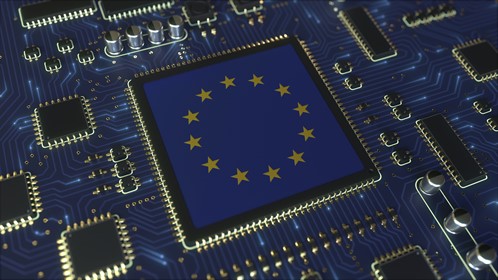
Read more

The notion of intellectual property is at the core of technological innovation, economic growth and industrial policies. This research project aims at analysing the competitive and regulatory enivornment, as well as the business models supporting the innovation process and the development of key technologies for the digital age. The project is articulated into four lines of research.
If you’re interested in the project’s research outputs, check the IP & Innovation series in our Resources repository
The first area of research focuses on Standard Essential Patents (SEP) and, more broadly, on the organisation of innovation in the digital economy. In this line of research, the team monitors and analyses the evolution of the intellectual property framework related to standard-essential patents. Current research efforts are directed towards understanding the uptake of patent enforcement proceedings before the Unified Patent Court (UPC) and the legislative process of the proposal for a Regulation on SEPs put forward by the European Commission.
The second area of research explores the impact of the EU Digital Agenda on innovation and competition in digital markets. This research delves into the set of regulations introduced in recent years by the EU Commission to bolster its digital sovereignty and establish standards related to digital data, technology, and infrastructure. Specifically, the focus is on the Digital Markets Act (DMA), which targets large online platforms (referred to as “gatekeepers”) to ensure “fairness” and “contestability” in digital markets. The project investigates the effects of DMA on the innovation process and business models of the Big Tech companies affected by its implementation.
The third area of research addresses the business opportunities and competition dynamics related to the General Purpose Technologies (GPTs), including the latest generations of mobile communication technologies (5G evolution towards 6G) and Artificial Intelligence. This area analyses the most recent regulatory developments that impact the expansion of these technologies.
The fourth area of research pertains to the infrastructures of the digital economy: networks, value chain/business models, and geopolitical issues. The entire digital economy relies on a reliable and ubiquitous Internet infrastructure. While the Internet architecture has demonstrated remarkable adaptability over the decades, accommodating continuous changes brought about by technological innovation, new challenges have emerged. These challenges include the commoditisation of infrastructure and the associated debate about the fair contribution of all digital players to network deployment costs. These issues necessitate immediate analysis. Consequently, this area of research examines the evolution of the Internet architecture, its impact on investment incentives, business models of firms active in the Internet infrastructure value chain, and the potential need for additional regulations in this regard.
This project receives funding from the Market Donors of the Centre for a Digital Society.

Pier Luigi Parcu
Director
Centre for a Digital Society
Director
Centre for Media Pluralism and Media Freedom

Marco Botta
Deputy Director
Centre for a Digital Society
Adjunct Professor
University of Vienna

Maria Alessandra Rossi
Scientific Coordinator
Centre for a Digital Society
Associate Professor
University of Chieti/Pescara

Lapo Filistrucchi
Professor
University of Florence
Advisor
Centre for a Digital Society

Anna Renata Pisarkiewicz
Research Fellow
Centre for a Digital Society

Read more
Video

Read more